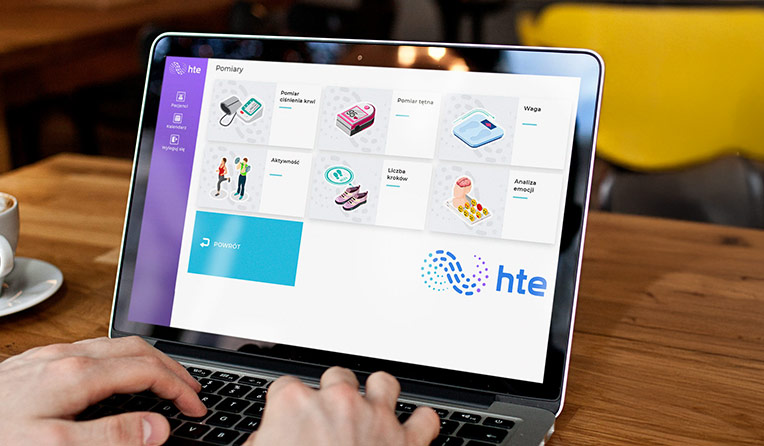Intelligent system for examining and supporting the emotional state of people with chronic diseases or undergoing rehabilitation.
We offer an advanced system for supporting patient diagnostics and rehabilitation, which combines modern technologies with practical solutions for the medical sector. Created with hospitals, clinics and independent medical practices in mind, our system offers innovative functions tailored to the various needs of users.
Target groups of the solution:
Medical facilities
• Hospitals and Clinics – large medical facilities that need advanced solutions for managing patients’ medical records.
• Clinics and Smaller Clinics – smaller medical facilities that can use cloud licenses, providing easy access to documentation and support for rehabilitation processes.
• Independent Medical Offices – individual doctors and practices running private practices who can use cloud solutions providing access to advanced functions without having to maintain a complicated IT infrastructure.
Individual patients
• People undergoing rehabilitation who need support in monitoring their health.
• Patients who want to archive medical data and track their health outcomes.
• Users who are looking for tools that facilitate communication and coordination with medical facilities.
Emotion analysis
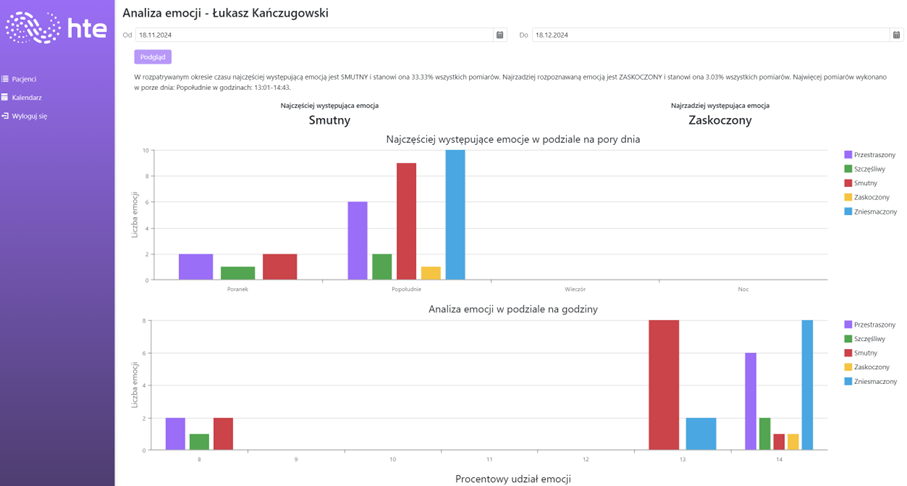
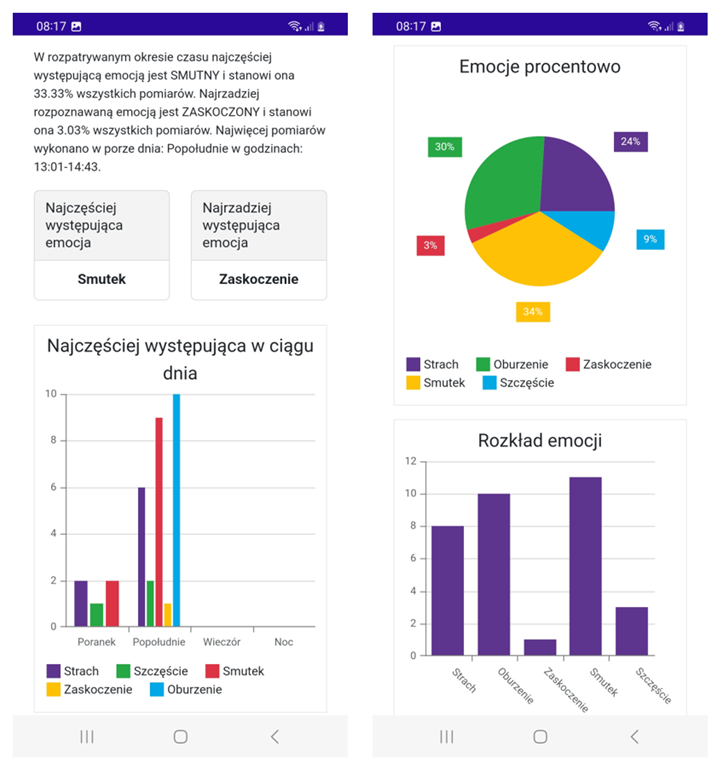
Measurement analysis
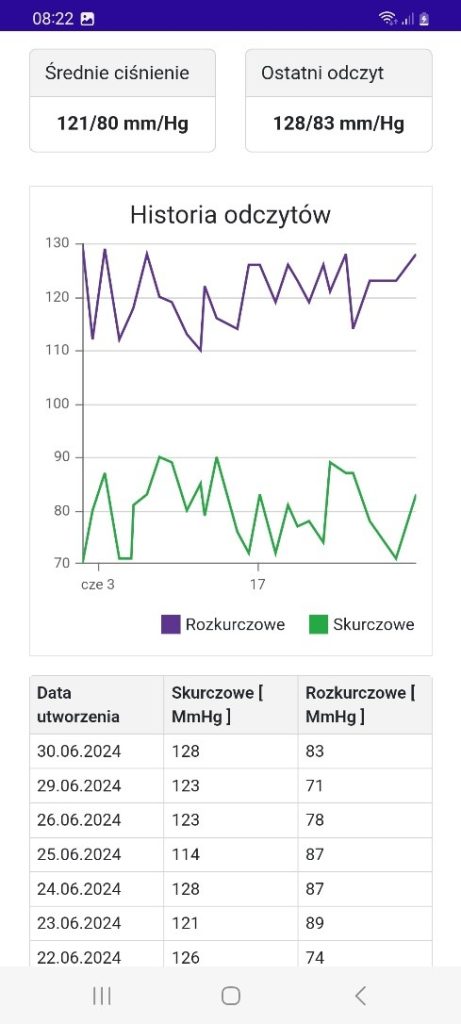

Assistant

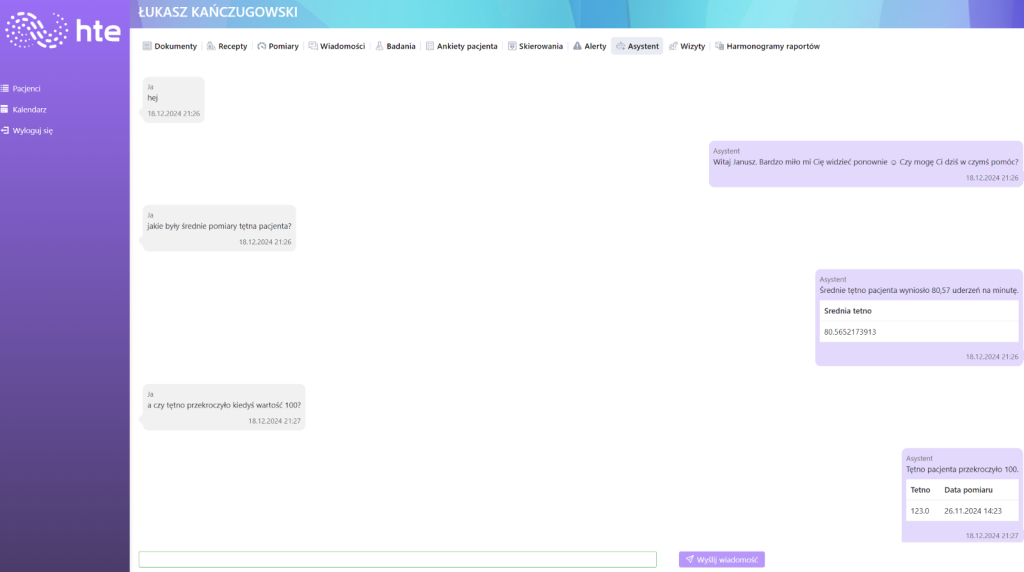
Scheduling and Alerting
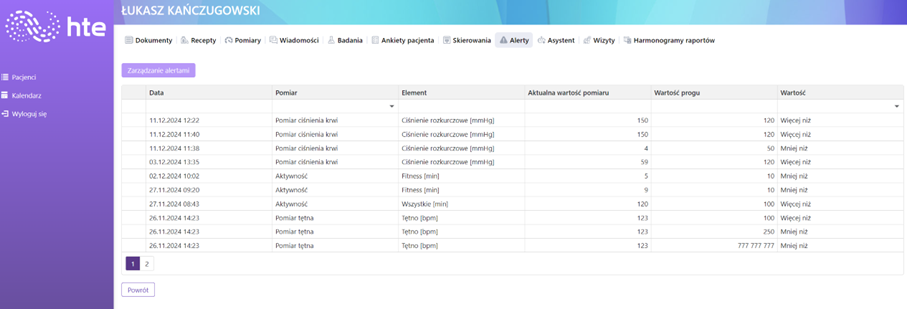
Key functionalities of the system
- Analysis of patients’ emotions
- Recognition of emotions such as joy, sadness or stress thanks to image analysis algorithms.
- Facilitating monitoring of patients’ emotional state during the treatment process.
- Support for natural language processing (NLP/NLU)
- Text and speech analysis to generate personalized reports and recommendations.
- Facilitating communication between patient and doctor.
- Personal assistant module
- Automatic reminders about visits, medications or therapeutic tasks.
- Creating reports and data visualizations regarding patient treatment progress.
- Advanced analytical module
- Generating reports on medical outcomes and emotional states of patients.
- Analysis of treatment costs and other data relevant to healthcare.
- Micro-service architecture
- Easy scalability and integration with existing IT systems in medical facilities.
Benefits for customers:
- Improving the quality of healthcare – personalized diagnostic and therapeutic support,
- Cost reduction – automation of diagnostic, rehabilitation and therapeutic processes,
- Ease of implementation – flexible system architecture, tailored to customer needs,
- Innovation – use of artificial intelligence, computer vision and NLP/NLU.


